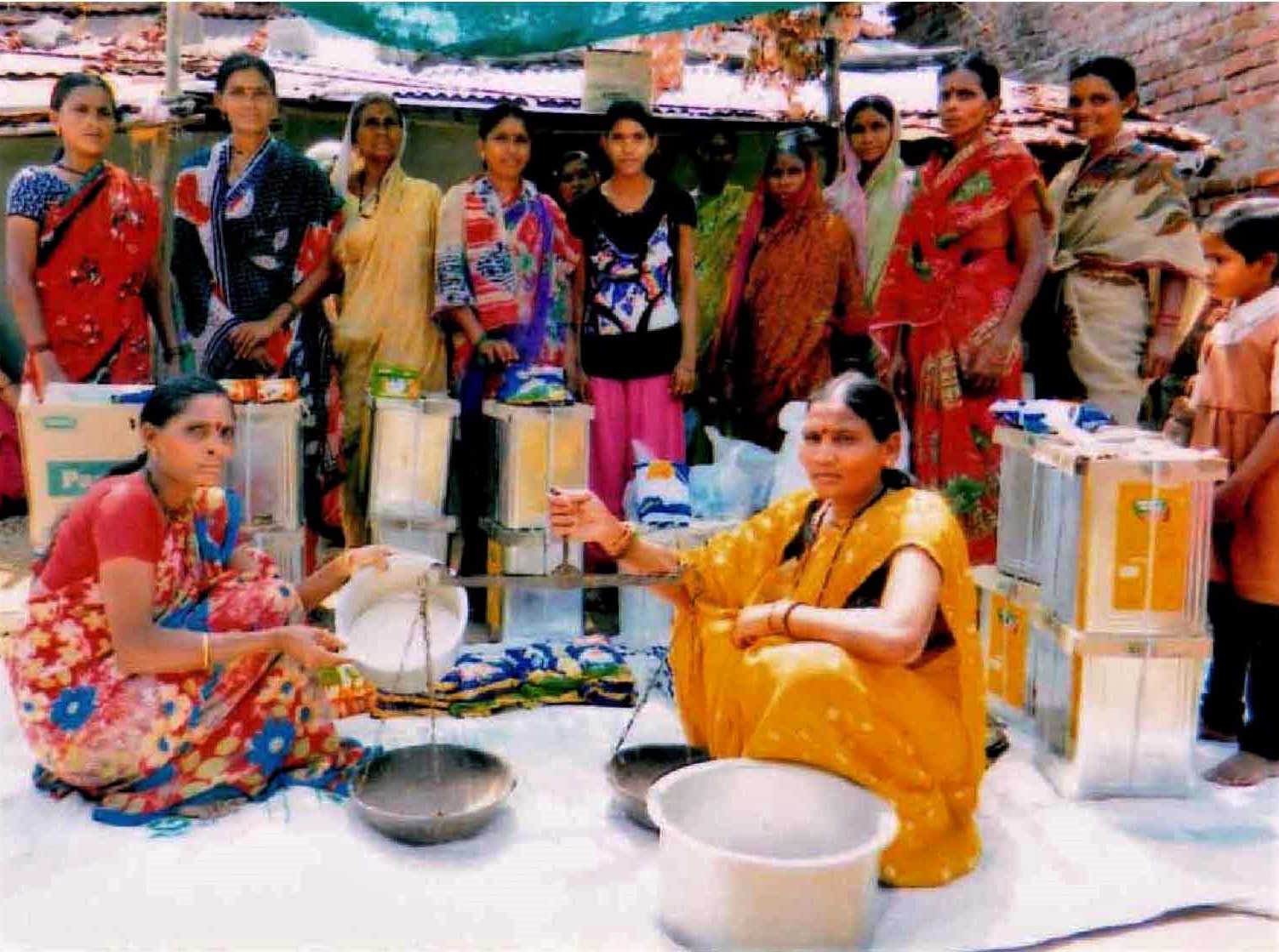Small Savings and Self-help Groups
Savings is a need for everyone, especially for the poor women who are more vulnerable due to their poverty, their status in the households and also because of the wrath of nature. Women are generally more practical, stable and able to work out appropriate strategies to deal with their environment. Women tend to be more concerned about their family’s future and hence the idea of saving develops faster. We have noticed that it is also sustained longer among the poor women compared to the men.
Credit is one of the necessary aspects for the economic advancement and improvement of women. A substantial number among the poor continue to remain outside the purview of the formal credit system. The traditional moneylenders also continue to play a dominant role in their lives.
Chetana-Vikas started activities related to savings, which have been proven to be successful in organizing poor women. When grouped together, it is found that women gain confidence. They are also able to articulate skills required in exercising their choices. A direct benefit of this is increasing their employment potentials and income through savings. Moreover, as a “collective” they also become bankable.
We emphasize the importance of regular savings as an individual and as a collective by discussing –
- How do small savings grow bigger when women come together and save on a regular basis?
- How do group savings ensure needy availability of own funds at regular intervals?
- How do savings become an asset and get expressed in favourable forms?
- How women, can derive, articulate and realize their strength when acting as a collective?
Features and Figures of our Economic Empowerment activities
Collective Effort
The women are made conscious that their collective effort is not only to save but in the long run, it could turn into an instrument of economic empowerment for them.
Group management of accounts
The savings of the group remains with the members of the group. They take turns to manage the accounts, which gives them a direct experience of basic accounting skill.
Collective decision-making
The group decides their norms, elect their representatives and spell-out the responsibilities of the representatives, which include:
- Holding group meetings at regular intervals.
- Collecting savings amounts and keeping proper records.
- Participating in training programmes organized by Chetana-Vikas.
- Being easily accessible to all the members.
Flexibility
There is no uniform set of rules for such savings groups. Depending on their need and requirement they can be altered.
Easy account-keeping
There is a uniform rate of savings. It helps to keep the account easy and brings in a feeling of equality. On the meeting day after the collection of savings, the collected amount is disbursed as loans. The group decides as to who should get the loan and on what terms.
Changing loan patterns
It has been observed that gradually loaning pattern is changing. Earlier, women asked for petty recurring loans. Over time they have realized that maintaining an “investment” is a better long-term option.
Common fund
Apart from the savings raised from members, the group also raises its fund from the interest earned from the loans disbursed, fines/penalties collected from the members. This fund belongs to the group and not to any individual member, and hence is utilized for the common good of all and/or public purposes.
Recovery of loans
Members maintain a healthy check and balance process for loan repayments. It has been observed that since the group takes the responsibility of maintaining the recovery process, the rate of recovery amongst these groups is 100%.
These collective savings and organisation of women also make them eligible for bank loans. Many individual farmers are defaulters of loans making it even harder for them to draw loans from banks. Our Self-Help groups form linkages with Banks. Giving them the ability to work with the banking officials also empowers them to deal with the bank officials, manage the transactions, and the paperwork involved in typical banking procedures.
Federation of Self-Help Groups (SHGs)
In the beginning, the transaction was limited to the members of a group only. The potential increased and they started the transaction from one group to another group and further from one village to another. These made them think of a corporate body to facilitate the dealings on higher levels. This type of Federation named “Chetana Mahila Mahasangh” has been set up.They provide loans to the village self-help groups to give to their members during agricultural seasons. Money is given as loans to different groups without a single defaulter. The loans are used to purchase, cows, seeds, spray pumps, farming operations, sewing machines, cameras, trades of incense sticks and spices etc. There are such 50 types of business, run by women.
9 Federations cater to the needs of 5,000 women either for the individual, for collective business or for other purposes. The work is carried out by committees of pioneer village women who, plan, scrutinize and discuss the eligibility of women who apply for loans. Special pieces of training are given for proper account and record-keeping and forward planning. This also develops knowledge-attitude and skills for appropriate prioritization, understanding needs and giving the right direction to the movement.
The pioneer women are identified for their leadership qualities and special pieces of training and opportunities are offered which take into consideration their personality and skills. The collective demand routinely is up to Rs.50,00,000/- and is constantly increasing. Women’s committee routinely sanctions about 90% of the demand every year. There is a 100% recovery of money.
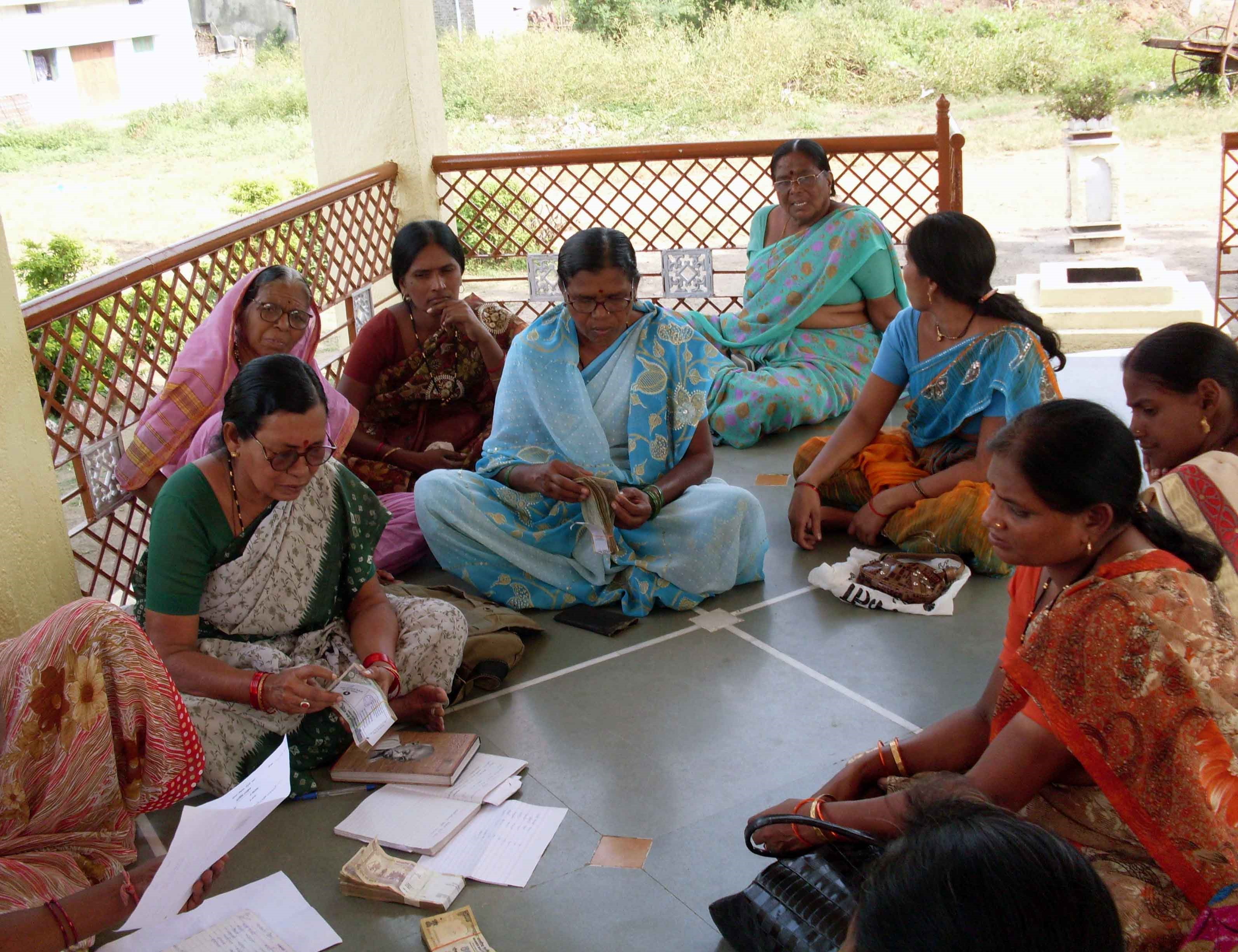
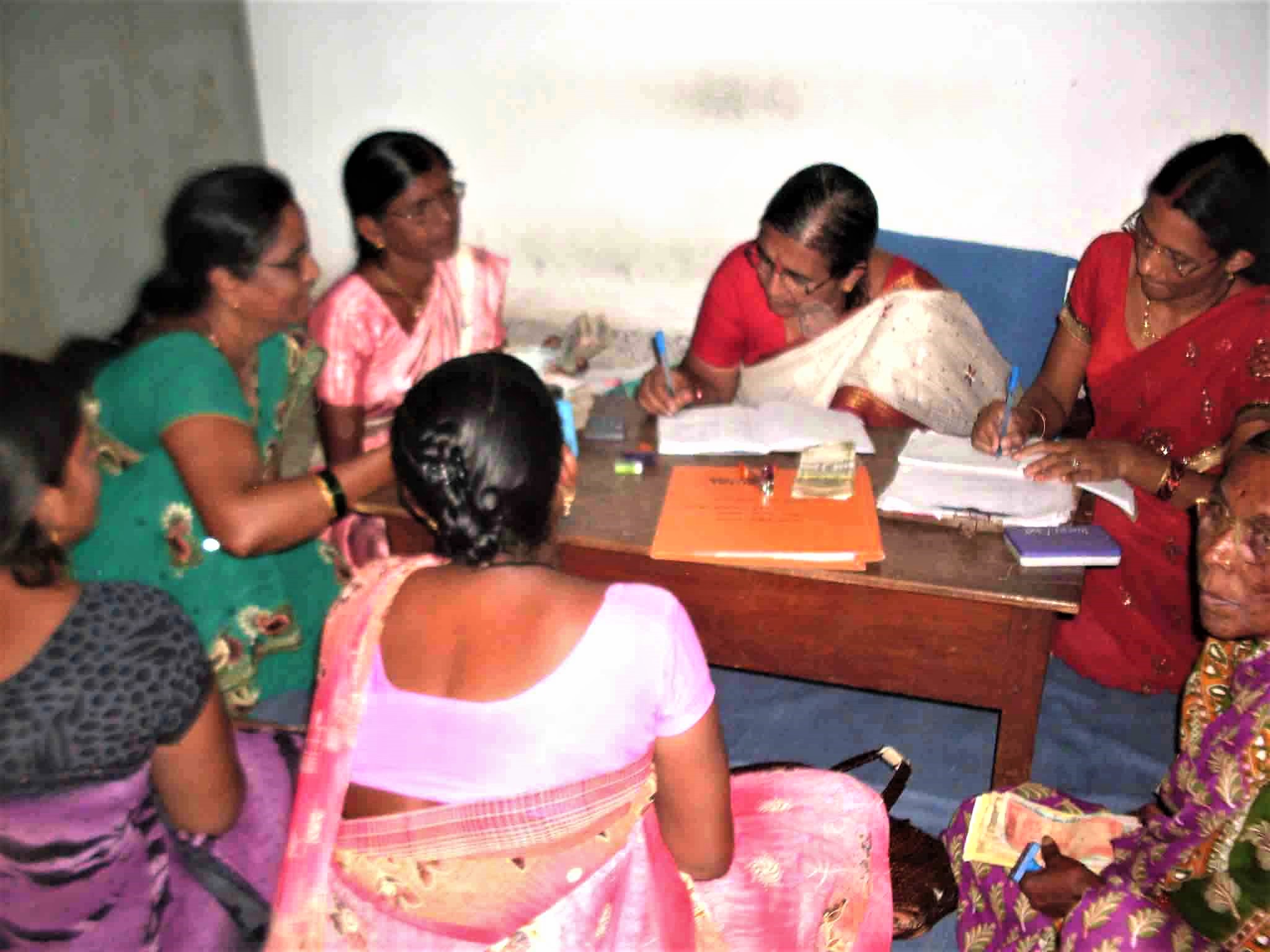
Self Help Group of Men
Men were also encouraged to form their separate SHGs. Most of them are bank defaulters, failing to pay back mainly because of non-remunerative prices to agro-produce. In despair, many of them turn alcoholics or even are driven to suicides. The SHG provides them with an opportunity to have some small capital in hand, which can tide them over difficult times.
About 23 groups with 95 members are functioning with collective savings of Rs.4,50,000. Their annual turnover was Rs.6,00,000.
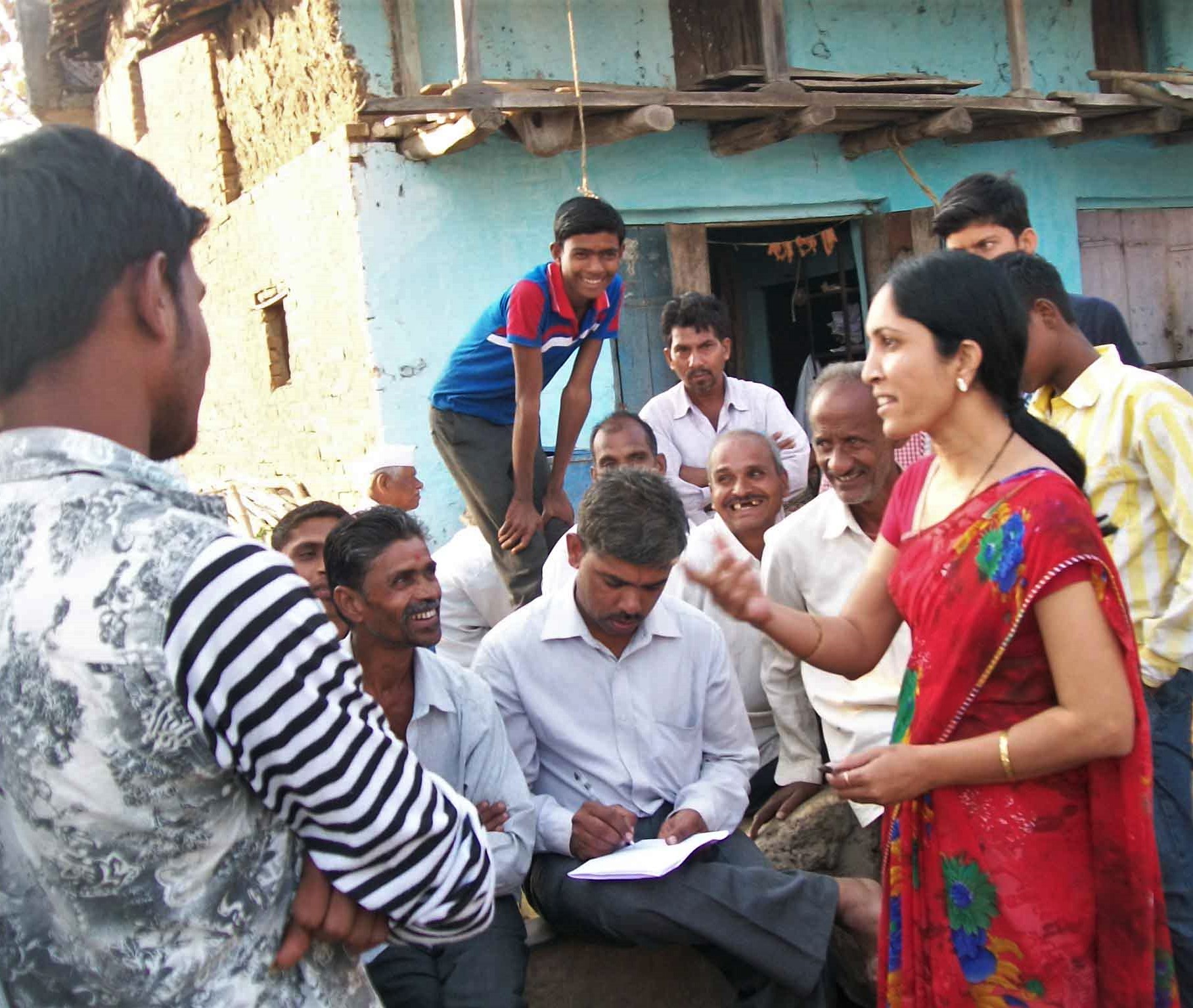
Small scale Economic Activities
While the savings help women in times of need effectively, women are encouraged to take up loans to start ventures, which can help the family to improve its economics and also act as livelihood support. These income-generating activities are taken up as individual women and women collectives. The goal is to bring about a change in the quality of life of women & their families.
All entrepreneurship activities have multifaceted objectives, which are achieved, to a large extent. Training the women for individual OR collective BUT independent business ventures gives an opportunity to tackle poverty and deprivation.
The women pass through a process, which automates their awareness, education and training. They have to keep pace with the changing circumstances by studying the rise and fall in prices, seasonal variations in demand and supply, transactions with banks, dealings with customers and traders etc. The benefits accrued, if not counted in money, are wholesome.
Special efforts are taken to encourage women to take up trades traditionally handled by men. These trades pertain to machines or mechanization. A new message is taken from these trades that women can opt for anything in life and can also outshine men when it comes to performance and output. These trades include but are not limited to running flour mills, pulverizers, pulse processing units or even repairing bicycles, mixers, gas stoves etc.
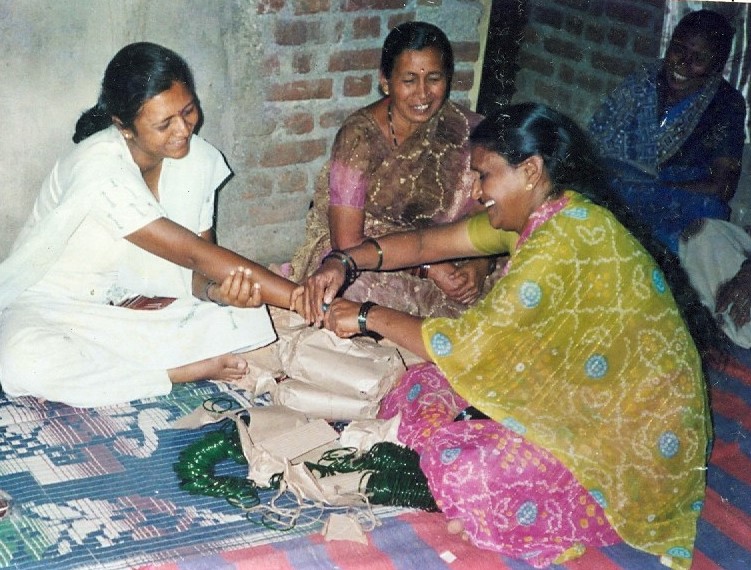
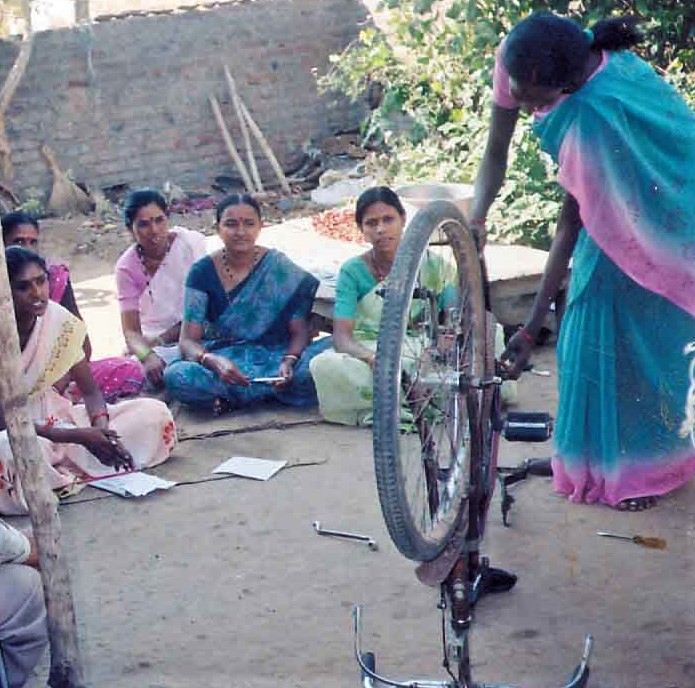
Individual Trades
Women find it extremely difficult to take the required first step and need guidance. Support from family is initially less usually but increases as money come in. Many women have painstakingly and slowly improved their life standards by gaining more money for food, clothes, and better housing among
other things. The women have taken up 40-50 small trades such as setting stationery shops, bangles, readymade clothes, incense sticks, grocery stores etc. They have also have taken up businesses such a goat rearing, dairy, and milk processing. Efforts are specially made to take up domains hitherto controlled by men such as – cycle repairing, gas stove repairing, sewing machine and mixer repairing camera operating, dal (lentil) processing, flour mills, and tailoring centres.
While the savings help women in times of need effectively, women are encouraged to take up loans to start ventures, which can help the family to improve its economics and also act as livelihood support. These income-generating activities are taken up as individual women and women collectives. The goal is to bring about a change in the quality of life of women & their families.
All entrepreneurship activities have multifaceted objectives, which are achieved, to a large extent. Training the women for individual OR collective BUT independent business ventures gives an opportunity to tackle poverty and deprivation.
The women pass through a process, which automates their awareness, education and training. They have to keep pace with the changing circumstances by studying the rise and fall in prices, seasonal variations in demand and supply, transactions with banks, dealings with customers and traders etc. The benefits accrued, if not counted in money, are wholesome.
Special efforts are taken to encourage women to take up trades traditionally handled by men. These trades pertain to machines or mechanization. A new message is taken from these trades that women can opt for anything in life and can also outshine men when it comes to performance and output. These trades include but are not limited to running flour mills, pulverizers, pulse processing units or even repairing bicycles, mixers, gas stoves etc.
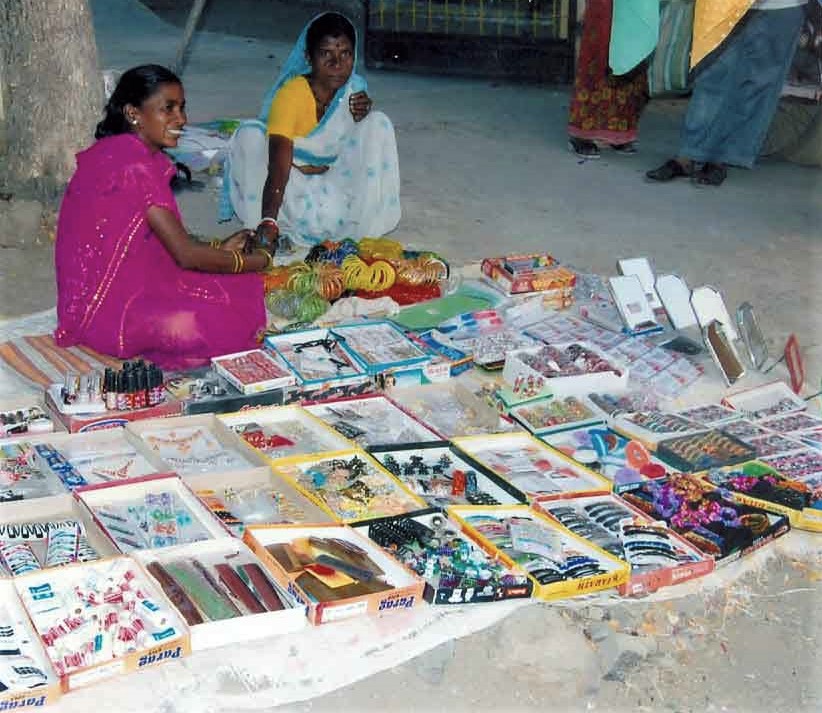
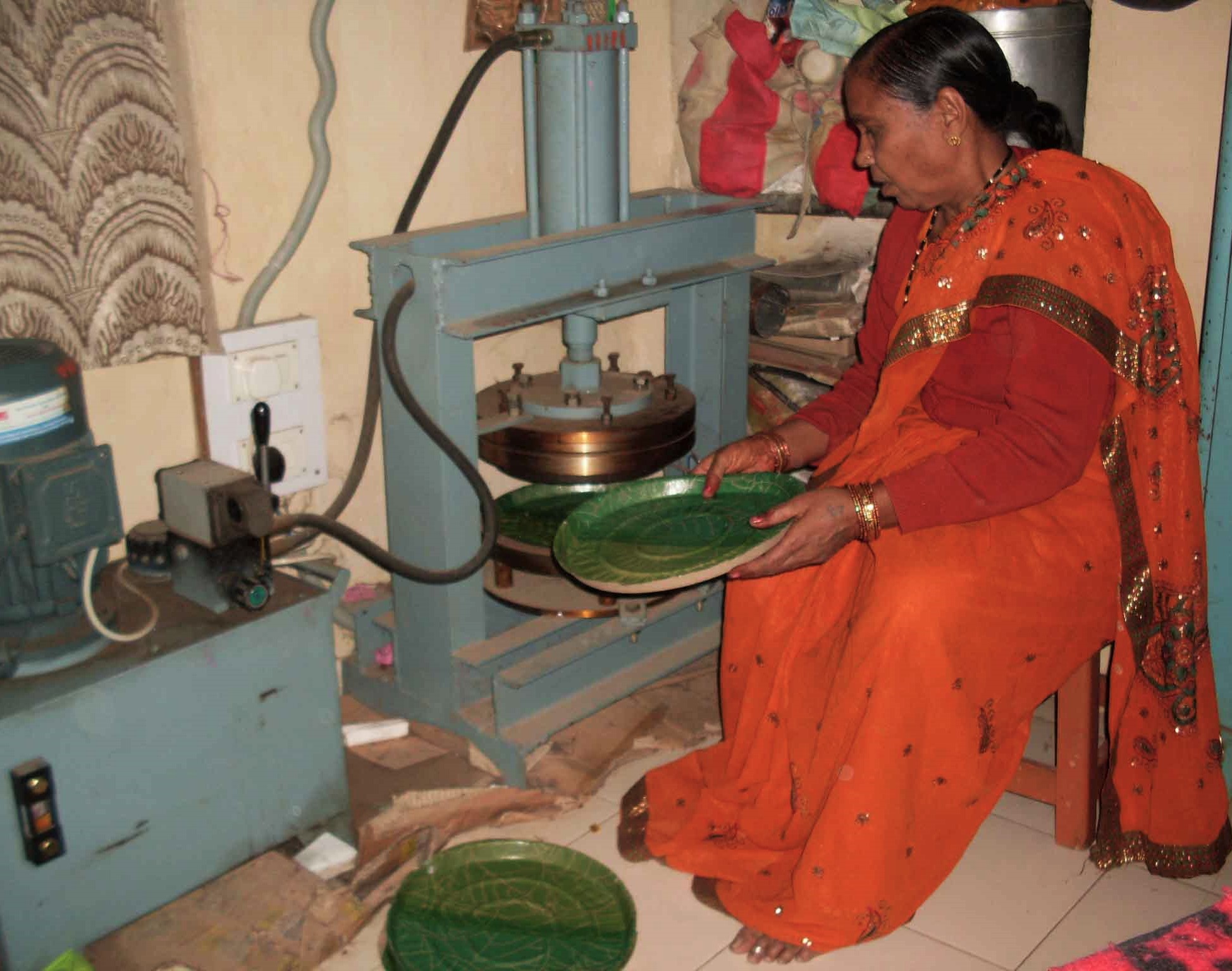
Collective Trades
Women derive support and encouragement from each other when they come together for taking up collective entrepreneurship.
These businesses include collective purchasing of grains such as rice, wheat, tur, soybean, jowar, mung, and chana as well as vegetables such as onions, garlic, potatoes etc. They sell it when prices increase. They also run dal processing units.
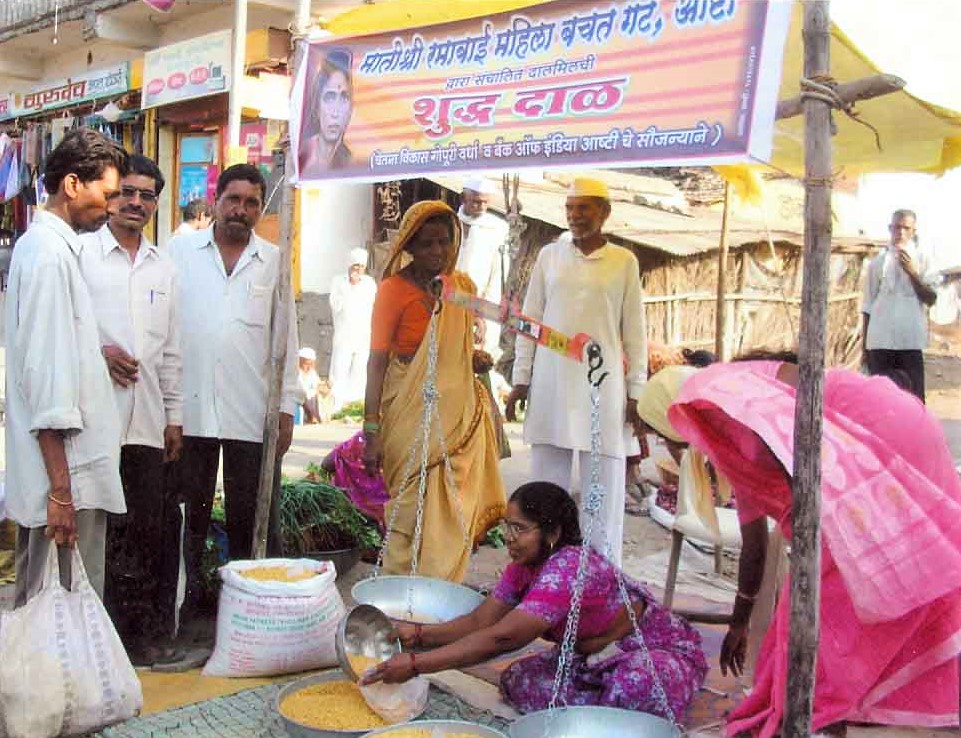
Poorti: The SHGs collect information on the daily needs requirements of women members mostly on monthly basis. They purchase all the goods such as soap, oil, grocery items, and cosmetic goods at wholesale prices. It is then distributed to women according to their requirements. This gives a huge saving to the women who otherwise individually purchase the goods from the village shops at retail prices. Apart from that, the women get goods of better quality and of their choice.
